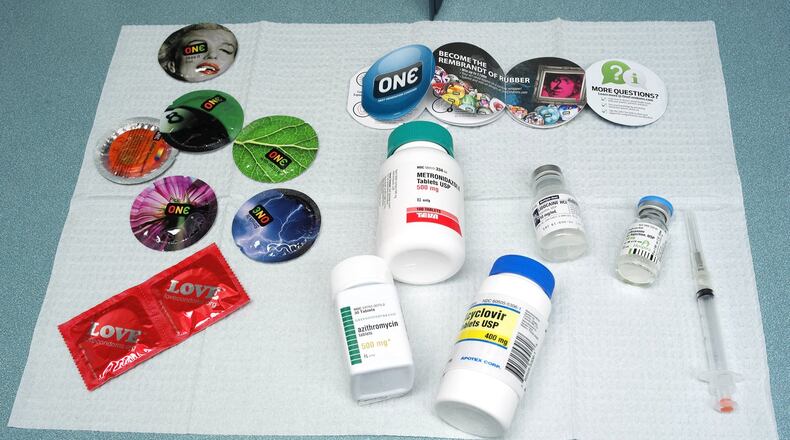“The theme is 2020 was an unusual year,” said Dr. Michael Dohn, medical director for Public Health - Dayton & Montgomery County. “We know that children fell behind on immunizations, we know that people fell behind on regular routine visits for their chronic diseases with their provider. And then with the 2020 numbers, we’re concerned that there are missed cases in those numbers for the same reason that other kinds of health care and preventive services were disrupted.”
Dohn said they are looking at ways to confirm what is really going on and see whether they are going to need to put in some extra resources to catch up on sexually transmitted (STD) disease testing the way that resources have been put to catch up childhood immunizations.
Prior to the pandemic, STD cases had been rising for years. When the latest CDC STD report came out in April, it found that annual cases of sexually transmitted diseases in the U.S. reached an all-time high for the sixth consecutive year.
The newly released 2019 STD Surveillance Report found 2.5 million reported cases of chlamydia, gonorrhea, and syphilis, the three most commonly reported STDs in 2019. There was a nearly 30% increase in these reportable STDs between 2015 and 2019.
“Less than 20 years ago, gonorrhea rates in the U.S. were at historic lows, syphilis was close to elimination, and advances in chlamydia diagnostics made it easier to detect infections,” Raul Romaguera, DMD, MPH, acting director for CDC’s Division of STD Prevention, said in the report. “That progress has since unraveled, and our STD defenses are down. We must prioritize and focus our efforts to regain this lost ground and control the spread of STDs.”
Many public health clinics at times during the pandemic had to redirect resources typically used for STD testing, treatment and prevention outreach, with clinic staff helping with other efforts like contact tracing, testing or vaccinating.
“We had some time that we closed in order to start the vaccination efforts more recently,” Dohn said. “Our nurses were heavily involved as vaccinators as well as doing the screening questions, because you need somebody who’s medically-oriented to listen to people and understand what they’re saying.”
Also, like the rest of the community, at times throughout the pandemic in 2020 STD clinic staff would get sick or be exposed to COVID-19 and have to isolate and quarantine.
Public Health – Dayton & Montgomery County’s STD Clinic is now open by appointment at 937-225-4550.
Some STDs can lead to serious health problems if they’re not treated. For example, an untreated STD, like chlamydia, can make it difficult or impossible for a woman to get pregnant. An untreated STD can also increase the chances of giving or getting HIV.
All STDs, even HIV, are treatable, and most are curable. The sooner someone gets tested, the sooner they can take action to protect their health and the health of their partner or partners.
Dohn said that one of the long running services public health workers provide is case investigation and contract tracing, to alert partners who might not know they were exposed and should get tested.
The department also can help with education and prevention. Currently, there’s a table set up along the wall in the first floor lobby of the Reibold Building at 117 S. Main St. in downtown Dayton, where there are brown paper bags with educational info and free condoms which people can discreetly take.
“Anyone can just come down and take a bag or two or whatever you might need,” Dohn said.
How to find STD testing
Public Health – Dayton & Montgomery County’s STD Clinic is now open by appointment at 937-225-4550.
To search for other STD testing options, go to gettested.cdc.gov/ and type in your city, state or zip code.
About the Author

